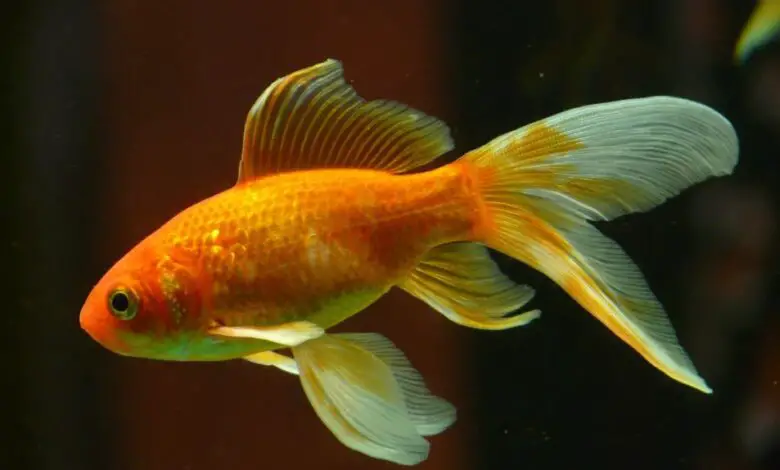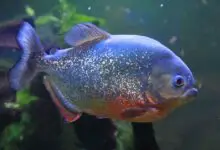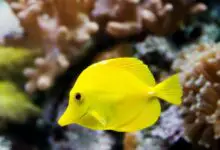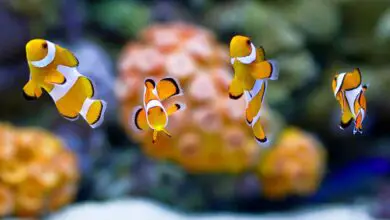How To Boost Immunity Of Your Fish All-Natural Way

Owning an aquarium can be an incredibly rewarding experience. Watching your fish swim gracefully through brilliantly colored coral and plants is relaxing and mesmerizing. However, any aquarium owner knows it also comes with responsibilities – like protecting your fish from illness and disease.
While antibiotics and medications play an important role in treating sick fish, focusing on prevention through natural methods is ideal. Boosting your fish’s immunity keeps them vibrant, active, and less prone to infections in the first place.
In this blog post, we’ll explore several all-natural techniques you can use to give your fish the best chance at a long, healthy life.
How the Fish Immune System Works
Before we dive into natural immune boosting methods, let’s quickly cover how the fish immune system functions. This will provide context on why certain supplements and strategies are effective.
Fish have both an innate (non-specific) and adaptive (specific) immune system. Innate immunity offers general protection against pathogens and engages when a foreign substance enters the body. Adaptive immunity targets specific threats and improves with repeated exposure.
Some key components of the fish immune system include:
- Skin/mucus – Acts as the first physical and chemical barrier against pathogens.
- Lysozyme – An enzyme found in mucus, tears, and saliva that destroys bacterial cell walls.
- Complement proteins – Helps clear infections and triggers inflammation/other immune responses.
- Macrophages – Large white blood cells that engulf and digest pathogens.
- Lymphocytes – Specialized white blood cells that remember past infections and generate tailored immune responses.
This combination of generalized and tailored defenses allows fish to mount an immune response against the variety of bacteria, viruses, parasites, and fungi they may encounter.
But what steps can aquarium owners take to keep this delicate immune system functioning optimally? Let’s take a look at some all-natural options.
The Immune-Boosting Power of Prebiotics & Probiotics
One of the best ways to boost fish immunity is actually through their gut health and microbiome. The community of bacteria living in the intestinal tract heavily influences the immune system.
Prebiotics are non-digestible fibers and carbohydrates that provide nourishment for this good bacteria. They stimulate the growth and activity of beneficial microorganisms.
Some prebiotic supplements made specifically for fish include inulin, fructooligosaccharides (FOS), and galactooligosaccharides. Feeding small amounts of these compounds creates a thriving probiotic environment.
Probiotics take this a step further by directly introducing live cultures of healthy bacteria. The most common strains used are from the genera Lactobacillus and Bacillus.
These probiotic bacteria crowds out dangerous microbes, improves gut barrier function, and interacts directly with fish immune cells. This bolsters immunity on a cellular level.
Studies show prebiotic and probiotic supplements increase antibody production, disease resistance, and survival rates in fish exposed to pathogens. They also reduce stress and support growth.
When shopping for prebiotic/probiotic products, look for reputable aquarium brands that specialize in fish health. Follow instructions carefully regarding dosage and frequency.
While incredibly beneficial, gut microbiome supplements should be one part of a multifaceted approach to fish immunity. Next we’ll explore the power of vitamin-enriched diets.
Feed Your Fish a Balanced, Vitamin-Fortified Diet
Much like humans, nutrition plays a major role in fish health. Their main source of vitamins, minerals, and other nutrients is their diet.
Many mass-produced fish feeds unfortunately lack proper vitamin enrichment. This can lead to deficiencies that reduce immune function and disease resistance.
Look for high quality feeds that contain ample amounts of:
- Vitamin C – Stimulates white blood cell activity and antibody production. Also acts as an antioxidant.
- Vitamin A – Supports mucus membrane health and cell differentiation/growth. Also boosts antibody levels.
- Vitamin E – Protects cells from damage caused by molecules released during immune responses. Has antioxidant properties as well.
- Vitamin D – Plays a complex regulatory role in immune cell proliferation and function.
- Magnesium – Involved in antibody production and macrophage activation. Also helps regulate inflammation.
- Zinc – Necessary for lymphocyte development and helps damaged tissues heal.
- Selenium – Required for proper B and T cell activity. Has antioxidant effects that protect tissues/cells.
A truly high quality feed will contain precise amounts of these and other vitamins/minerals known to support fish immunity. This complete nutrition provides the building blocks for a strong immune system.
Beyond vitamins, certain novel ingredients also boost the nutritional profile. Let’s look at one of the most popular: spirulina.
Harness the Immune-Boosting Power of Spirulina
Spirulina is a type of blue-green algae that has remarkable nutritional and medicinal qualities. It contains a wide array of vitamins, minerals, antioxidants, and bioactive compounds.
Adding a small amount of spirulina powder or flakes to your fish’s diet (or soaking pellets in spirulina water) provides an array of benefits:
- Protein – Provides essential amino acids for tissue growth and repair.
- Antioxidants – Substances like phycocyanin protect cells from damage caused by immune responses.
- Polysaccharides – Compounds that stimulate white blood cell activity and antibody production.
- Immunostimulants – Molecules that enhance tissue recovery, disease resistance, and resilience against stress.
Research shows supplementing feed with as little as 1% spirulina significantly increases fish growth rates, antioxidant status, and survival against bacterial infections.
Other immunostimulating algaes like chlorella and astaxanthin provide similar benefits. Rotate these superfoods to give your fish a spectrum of micronutrients.
Spirulina and other algaes offer a simple way to supercharge the nutritional profile of feed. But nutrition is only one piece of the immunity puzzle. Next we’ll explore how certain botanicals can help.
Medicinal Plants & Botanicals That Boost Recovery
For millennia, traditional medicine systems have used certain herbs and botanicals to improve health. Modern research is now confirming many of these plants offer medicinal benefits for fish as well.
Some all-natural botanicals shown to boost fish immunity and aid recovery include:
- Aloe Vera – Stimulates cellular immunity and possesses antimicrobial and antioxidant properties. Accelerates wound healing.
- Garlic – Contains compounds like allicin that enhance nonspecific immune responses. Also has antibacterial and antifungal effects.
- Ginger – Anti-inflammatory properties help modulate excessive immune responses. Also improves gut health.
- Green Tea – Polyphenols and catechins stimulate lymphocyte proliferation while reducing stress. Has antibacterial effects as well.
- Turmeric – The compound curcumin enhances antibody production, phagocytic activity, and disease resistance. Also anti-inflammatory.
These and other botanicals can be administered a few different ways. Many aquarists use concentrated liquid herbal extracts designed specifically for aquarium use. Follow product instructions carefully.
You can also steep herbs like ginger or turmeric to make a natural tea, then use the water during water changes. This infuses the tank with beneficial compounds.
Be sure to research dose, delivery method, and duration of treatment for any herbal supplement. Used properly, they can accelerate recovery and improve survival chances.
So far we’ve covered probiotics, diet, algaes, and botanicals. Next we’ll explore how optimizing tank conditions and quarantine procedures support fish immunity.
The Importance of Quarantine & Providing Proper Tank Conditions
Beyond supplements and nutrition, basic husbandry practices also influence fish health. Two key areas aquarists should master are quarantine of new fish and dialing in tank conditions.
Quarantine – Whenever adding new fish to your tank, they should be quarantined for 2-4 weeks first. This allows you to observe health, treat any issues, and prevent introducing pathogens.
Provide quarantined fish with clean water, hiding places, and a stress-free environment. Look for signs of illness like frayed fins, bloated abdomen, skin lesions, or flashing/rubbing. Promptly treat any diseases discovered during quarantine.
Only move fish to display tank once fully healed. This simple routine prevents many contagious diseases from spreading through your tank.
Ideal Tank Parameters – Fish immune systems evolved to function optimally within certain water parameters. Replicating these in your tank reduces physiological stress.
Some key parameters to carefully control include:
- Temperature – Varies based on species. Use aquarium heater and thermometer to maintain ideal temp.
- pH – Most fish do best in pH between 6.5-8. Use pH monitor and adjust when needed.
- Ammonia/nitrites – Toxic even at low levels. Control with filter media and routine water changes.
- Salinity – Important for marine tanks. Refractometer helps monitor.
- Oxygenation – Proper water movement and surface agitation adds oxygen.
Test water periodically with liquid test kits. Make adjustments when any parameter veers off target levels. This maintains a healthy internal tank environment.
Let’s recap some warning signs that indicate your fish may be under excessive physiological stress.
Recognizing Signs of Stress & Poor Health
Prevention is ideal, but sometimes fish still fall ill. Be vigilant for any unusual behaviors that signal compromised health:
- Loss of appetite
- Lethargy or hanging at surface/bottom
- Frayed fins
- Labored breathing
- Discoloration or bloating
- Flashing against objects
- Hiding or isolating from school
Rapidly identify and remedy health issues before they progress. Have a quarantine tank ready to isolate sick fish. Consult local fish store or resources to ID disease and proper medication if needed.
With close observation and the immune-boosting steps covered in this article, your fish can live long, vibrant lives.
Conclusion
There are many all-natural methods aquarists can use to keep fish immune systems strong and diseases at bay. Probiotics, diet, supplements, botanicals, quarantine, and ideal tank parameters work synergistically to support health.
Focus on reducing physiological stress through proper husbandry. Boost nutrition with vitamins, spirulina, and other superfoods. Use botanical extracts and teas to accelerate healing. Maintain clean, appropriately balanced water.
Your efforts will be rewarded with active, energetic fish that live to the fullest. A robust immune system is the best cure against disease. Pair that with close observation, rapid treatment when issues arise, and your fish will thrive for years to come.







